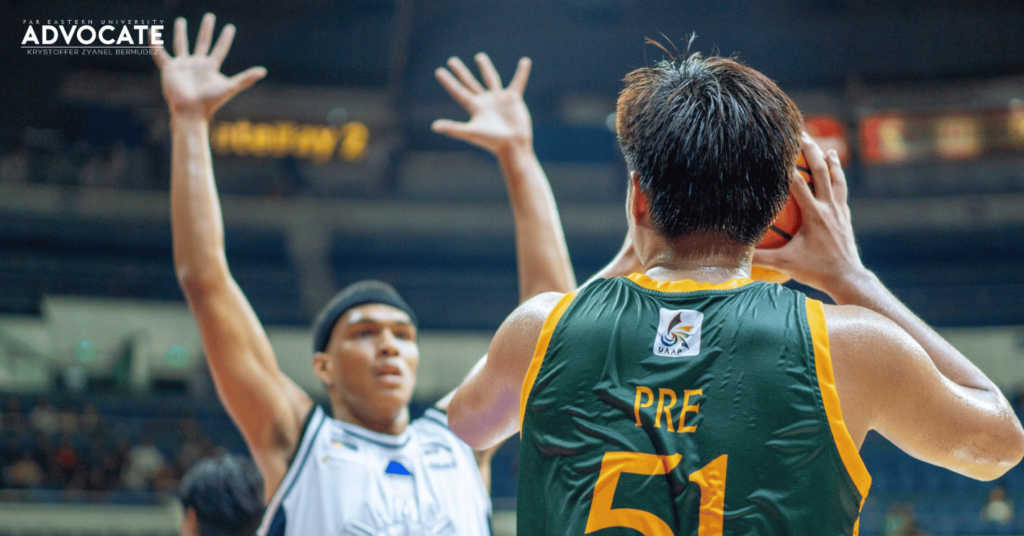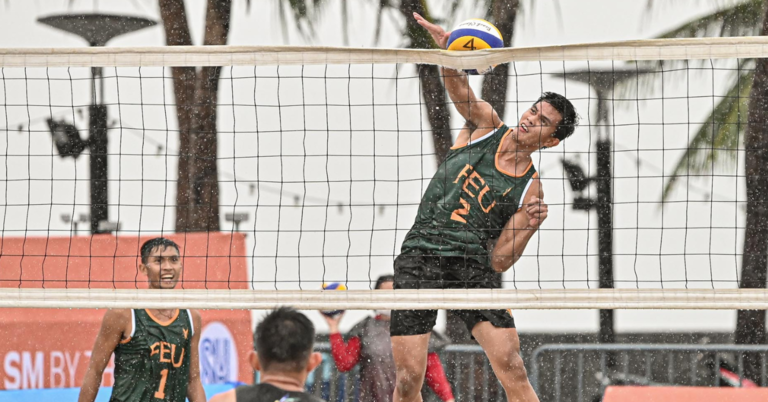
FEU COMELEC hails 133 qualified candidates for Elections 2024
- April 01, 2024 14:16
FEU Advocate
May 22, 2025 20:56

Eunoia
By Leiniel Santos, Senior Sports Writer
With the current poaching culture that has been happening year after year, the University Athletic Association of the Philippines’ (UAAP) landscape is at risk of shifting to a battle of 'who can spend more' rather than one fueled by heart and soul.
It is quite well known that the UAAP stands as one of the most iconic and celebrated tournaments in the country, not only because of the remarkable talents of its athletes but also for the battle of pride it represents.
Athletes are not just playing to win; they are competing to make their communities proud while representing them with unwavering passion and dedication.
However, this competitive, school-spirit-driven culture is on shaky ground because of the current poaching situation that has been continuously happening in recent years.
In past seasons, it became evident how aggressive some programs can be when it comes to poaching.
During this stretch, De La Salle University (DLSU) managed to snag the University of Santo Tomas’s (UST) Mark Nonoy, National University’s (NU) Kean Baclaan, and Ateneo de Manila University’s Mason Amos, while the University of the Philippines (UP) successfully landed UST’s CJ Cansino, NU’s Reyland Torres and Janjan Felicilda, and University of the East’s Rey Remogat.
The UAAP then seems to have revised its rules on athlete transfers because of this issue, further penalizing athlete transfers to complete one-year residency and two playing-year deductions instead of one.
This came to light following a painful update for the green-and-gold: Veejay Pre is set to leave FEU after months of rumors that other schools had extended him a highly enticing offer.
Tamaraw Veejay Pre instantly made waves from the moment he debuted on the UAAP paint, earning FEU’s first men’s basketball Rookie of the Year honor since Terrence Romeo in 2010 and etching his name into the UAAP record books as a rookie to score 30 points in a game, quickly making himself a target for poaching by other schools.
Despite the existence of his statement that he is ’100%’ committed to the Tamaraws, other schools were still able to poach him.
I am not saying that these schools are probably UP and DLSU, but they might be. And unfortunately, one can say that this has become a routine for them.
A routine that crumbles athletes’ loyalty and disrespects the spirit of school pride.
But still, why has it risen to the point where the UAAP found the need to change its rules?
While poaching is often viewed as a usual scenario in sports, the term ‘poach’ by definition means ‘to illegally hunt or catch,’ which in simpler terms, is a form of stealing.
Rules are there to protect the balance; therefore, it is no surprise that the UAAP modified its regulations, as when a team poaches someone, there is a need for them to face certain penalties.
However, there is still a reality that sports could not just be about passion or school loyalty, as it could be a key for an athlete to have a better life, with financial incentives sometimes playing a huge factor in their decisions.
I mean, who would not say yes to a seven to eight-digit offer?
Yet the question remains. What kind of system and culture are we building, where not only student-athletes are treated as commodities, but the schools that raised them are reduced to stepping stones?
Then they say in the UAAP, legends start here. But regardless of competition, legends are made by treating their opponents with respect.
Teams should always consider their ethical responsibility to uphold the values of fairness and integrity.
That it is not always about winning but uplifting the spirit of the game, with respect as its core.
While residency and eligibility penalties exist, at what cost will school recruiters come to realize that the impact of poaching goes beyond the regulations imposed, because that is a crucial truth we must never ignore.
(Photo by Krystoffer Zyanel Bermudez/FEU Advocate)









